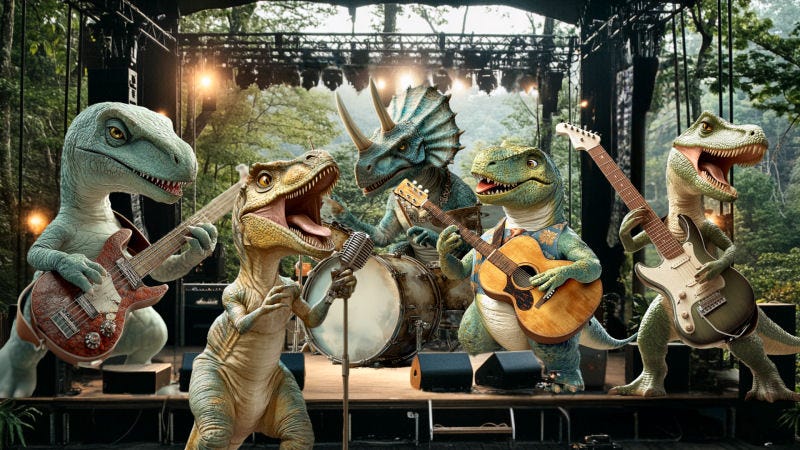Is there a point to being a famous musician anymore?
Fame is fleeting to the dinosaur legends too.
Keep reading with a 7-day free trial
Subscribe to SoundHole Guitar Lessons to keep reading this post and get 7 days of free access to the full post archives.



